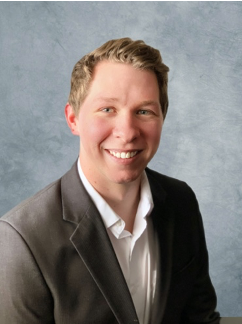
“Desire without knowledge is not good.” –Proverbs 19:2
Longing for something you don’t know how to grasp will only lead to frustration.
James K. A. Smith talks about a phenomenon he refers to as “cracks in the secular.” There are times when those with a purely secular worldview find themselves cracking open the boxes they’ve encapsulated themselves within in an attempt to see if the transcendent is there: think of an atheist medical doctor who prays for his terminally ill child to be healed, or the desperate widow who obsessively calls the psychic hotline to hear her husband’s voice one last time.
C.S. Lewis, in his well-known description of the human longing for transcendence, put it well: “If I find in myself a desire which no experience in this world can satisfy, the most probable explanation is that I was made for another world” [1].The problem is convincing people that these desires they have — for meaning, purpose, significance, love, happiness — cannot be found within this world. Though many have gained the whole world and complain about its meaninglessness, we never believe them. We believe we’ll be better stewards of our resources if only we could make it big, if only we could make the millions, or obtain the fame and prestige.
We’re all convinced of two things: (1) there is “something more” to life, and (2) this “something more” is attainable given the right conditions and opportunities. This is true of the impoverished and the wealthy, the unknown and the distinguished, the simple and the brilliant. It’s only when our systems, worldviews, or ideologies fail to deliver on their promises to obtain this “something more” that we begin to notice the cracks, and, when pushed to the limits, we try to peer through them. We pray, we chant, we channel positive energy, we do whatever it takes to try and tap into what lies beyond these cracks in our ideological frames.
We long for “Something more” but we just don’t know how to obtain it. When pressed hard enough, or when desperate enough, we see a light that shines through the cracks and we attempt to reach out and acquire it ourselves. We have the desire, but we lack the knowledge of how to obtain it. And this is not good.
So how do we obtain this Light? The same way we experience all other light, we behold it.
Something amazing happened 2000 years ago. “The Word became flesh and dwelt among us, and we have seen His glory, glory as of the only Son from the Father, full of grace and truth…For from His fullness we have all received grace upon grace” (Jn. 1:14, 16). John is emphasizing that when Jesus came into the world, those who had “eyes to see” saw divine glory; they saw the essence of the fullness of Christ, from which we have all received grace upon grace.
The pattern is this: you behold the glory of Christ and you receive grace upon grace; life-transforming grace that causes you to never be the same again. We are incomplete, we are fragile, we are weak; there is an essential part of our being that is absent that causes us to long for… “Something.” There are cracks in our hearts, and it is only when we set our eyes upon the glory of Jesus that we receive His fullness and are made whole.
“And we all, with unveiled face, beholding the glory of the Lord, are being transformed from one degree of glory to the next.” – 2 Corinthians 3:18
We are made whole and transformed by beholding the glory of Jesus Christ. Now “beholding” is different than “looking.” You can’t take a casual half-hearted glance at Jesus and expect to be changed. The disciples were with Jesus for three years and it wasn’t until after he had been crucified and resurrected that they fully grasped the glory of the Man they’d committed themselves to follow. It’s going to take more than a mere “look.” To “behold” means to look with consideration, with appreciation, with fixation and transfixion. Ray Ortlund explained beholding as staring at the glory of Christ until you see it. Beholding is something that you don’t have to use your eyes to do, you just hold something in your vision and let the weight of it rest on your mind and your heart. We do this by immersing ourselves in Scripture [2]. We do this by surrounding ourselves with people who have seen the Beauty of the world that lies beyond and seek to imitate them. We do this by intentionally placing ourselves in a posture that allows us to behold, in our minds, the vision that promises to flood our hearts with the Light that we long for (i.e. prayer and meditation).
And as you do these things, the cracks become wider, your vision becomes clearer, and you’ll be transformed, from one degree of glory to the next.
 Author: Kris Sinclair is a husband to Hayley, a father to Lyla Rose and Clara Lane, a student at Midwestern Baptist Theological Seminary, and the Pastor of Worship & Discipleship at First Baptist Church in New Lebanon, OH. His sole goal is to live a life that will still matter 10,000 years from now.
Author: Kris Sinclair is a husband to Hayley, a father to Lyla Rose and Clara Lane, a student at Midwestern Baptist Theological Seminary, and the Pastor of Worship & Discipleship at First Baptist Church in New Lebanon, OH. His sole goal is to live a life that will still matter 10,000 years from now.
Facebook: www.facebook.com/krissinclair2
Twitter: www.twitter.com/krissinclair_
Instagram: www.instagram.com/krissinclair
Website: www.krissinclair.com
[1] C. S. Lewis, Mere Christianity (New York: HarperOne, 2001), 136–137.
[2] Particular to this subject, the Gospels and the “High Christological” passages of Scripture are good places to start (cf. Phil. 2:5-11; Heb. 1:1-4; Col. 1:15-20).
We welcome outside writers to contribute to “Ideas and the Kingdom.” We are looking for individuals who are passionate about showing the reasonableness and desirability of Christianity by restoring the Christian voice, conscience, and imagination. We are looking for posts that are 400-800 words in length and submissions can be made to TwoTasksInstitute@gmail.com.




